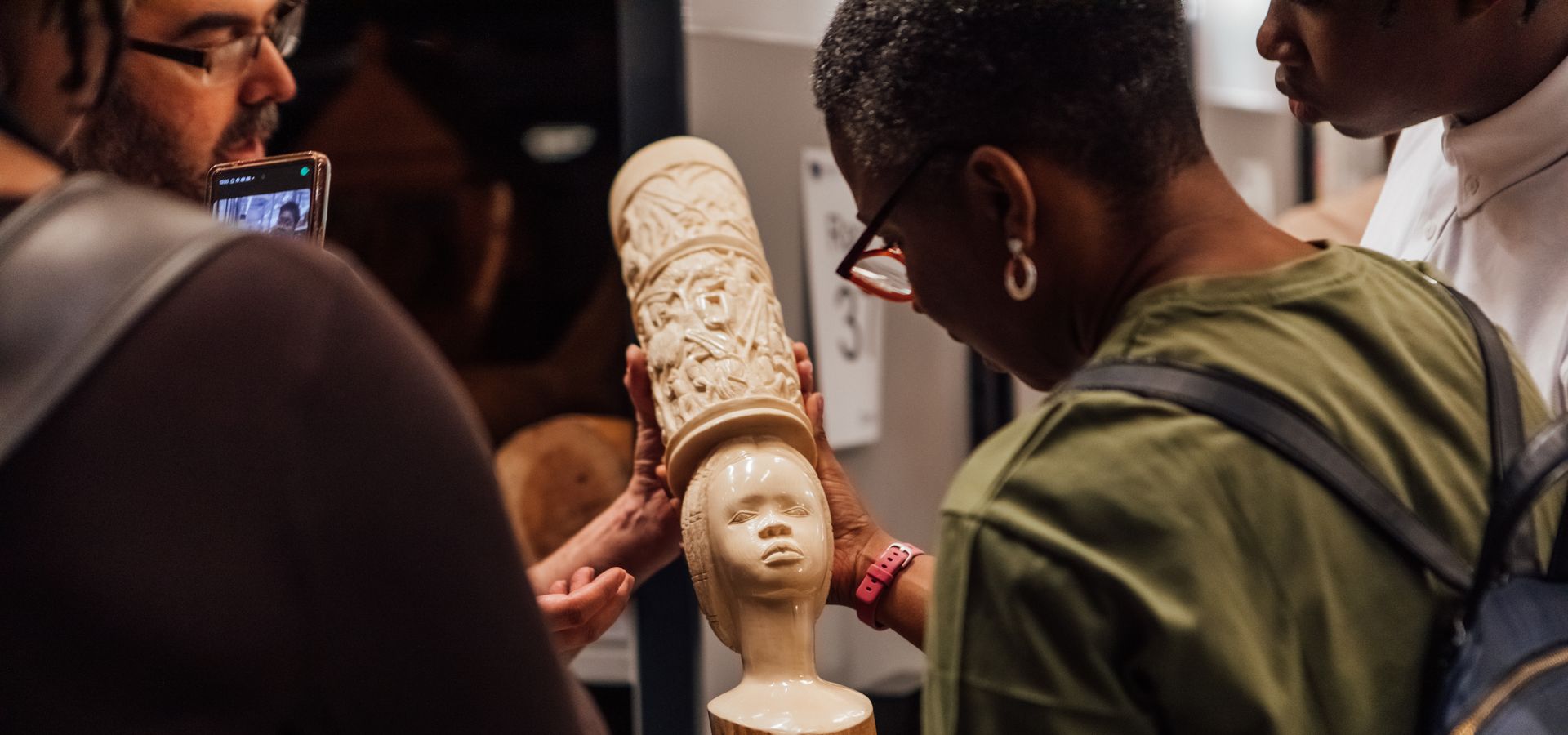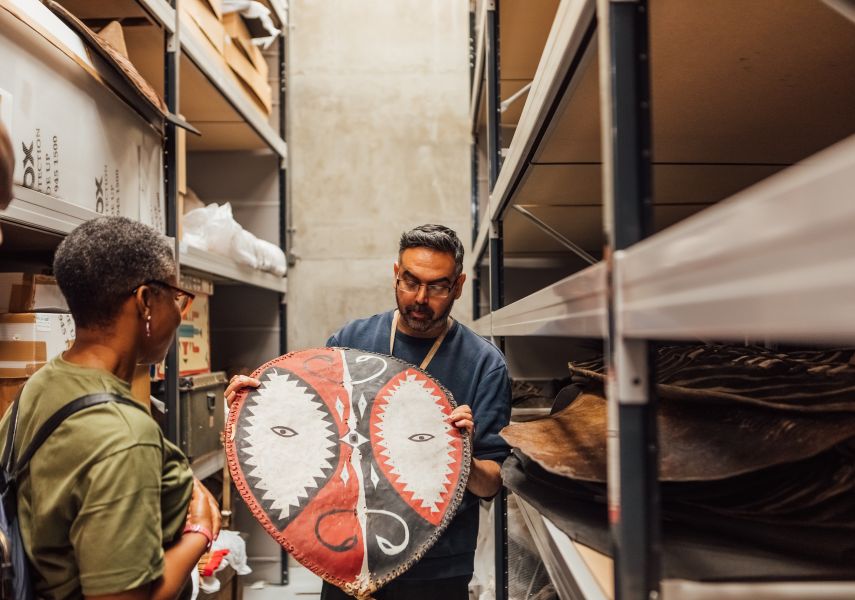
Anti-Racism and Colonial Histories
Leeds Museums & Galleries stands against racism in all its forms, we strive to put inclusivity at the heart of our museums and to reflect the diverse population of Leeds today.
Our venues are places of sanctuary, of reflection and of acceptance. We strive to offer a safe space to explore, question and contemplate history, art and heritage in Leeds. Leeds City Council has zero tolerance to all forms of discrimination.
Leeds Museums & Galleries recognises that key aspects of the UK’s history are connected to the relationship with enslaved and colonised people and places across the world.
Many objects in our collection were acquired during the 1700s to the mid-1900s. This was a period of immense change in parts of Africa, Asia, Oceania and the Americas, due to the impact of European colonial powers such as Britain, France, Belgium, the Netherlands, Spain and Portugal, all seeking to expand their areas of control. This led to unequal power relations with the people they encountered and was a time when many problematic views and attitudes regarding other cultures were formed.
Addressing and challenging this legacy is important to ensure the collection remains relevant to the people of Leeds now. It is important to staff across the service and to many aspects of our work. Our aim is to understand these relationships and continually question our assumptions, working practices, and how we present historical narratives to our audiences.
Collections Development
Our collections development policy is available to view online, and includes our approach to repatriation and restitution.
We continue to
- Support physical and intellectual access to collections and consider restitution or repatriation.
- Advocate collecting in a collaborative, non-exploitative way.
- Work with consultants and volunteers locally, nationally and internationally to re-examine collections, making historic and present-day inequality visible, and acknowledge that people will have a range of perspectives related to our collections.
- Promote a more diverse volunteer base and workforce that better reflects the people of our city.
- Advance our knowledge, question our approach, use of language and presentation, and provide an impetus to re-assess our collections through an internal colonial histories working group.
Shifting Perspectives exhibition
The 2022 Shifting Perspectives exhibition at Leeds Art Gallery explored issues around (mis)representation and identity through examining mechanisms of stereotyping and unequal power relations, connecting the past and the present. It celebrated the contributions of a wide range of Leeds communities, featuring different voices and perspectives on the issues raised by the exhibition.
Shifting Perspectives brought together nearly a hundred works of art ranging from the seventeenth century to the present day. Works created by artists of the global majority were shown alongside those by white artists, exploring both parallels and divergences. Artists included Barbara Walker, Frank Brangwyn, Jacob Epstein, Ronald Moody, Jade Montserrat and William Hogarth.
Shifting Perspectives invited you to share your own views, to keep shaping the interpretation of the artworks on display during the run of the show.
Collections data
Our collections database is where we store all the information we know about each of our 1.3 million objects. All of the stories that we tell in our galleries and online rely on the information written in these records.
Our collections team are currently working through each object record, adding information and warning flags to objects to make sure that the stories we are telling now and in the future are as complete and honest as possible. This work is ongoing.
So far, 135 objects have been flagged as controversial or racially offensive. We’ve also grouped objects together under themes like Black History and Enslavement to help us find records and links between them easily. If flagged objects are to be shown in exhibitions, or shared by us online, they will be done so with sensitivity and with respect to their context.
Decolonising the curriculum
We continue to work with multiple schools on in-depth curriculum planning, with a focus on developing cultural learning and telling diverse stories. This means that pupils in Leeds are being told whole, diverse stories across the primary curriculum. These stories are relevant in their school and make sense in their locality. They also ground them in their city and illustrate their diverse heritages.
We manage MyLearning, a website offering free learning resources from arts, cultural and heritage organisations. MyLearning continues to add to its Leeds: Empire and Colonialism theme in the Leeds Curriculum, which currently contains nine stories.

African collections project
In 2021 and 2022 Leeds Museums and Galleries took part in Devolving Restitution: African Collections in UK Museums Beyond London supported by Open Society Foundations, Oxford University and Art Fund.
The project enabled us to develop our links with African communities in Leeds and Yorkshire and to undertake provenance research on our extensive collections from sub-Saharan Africa, improving its documentation and staff knowledge on the subject. The project has also encouraged new dialogues with African claimants with a focus on decolonisation and restitution.
Decolonising the natural science collection
Natural Science curator Clare Brown features as a guest on the second series of our Museums n’That podcast, have a listen below.
In the episode, Clare explains how animals come to be in our natural science collection, and why dealing with the histories behind some of our collections can be so complex.
Find out more and explore other episodes of Museums n’That.
Listen, subscribe and leave a review on Apple Podcasts, Spotify and all the usual podcast suspects.
